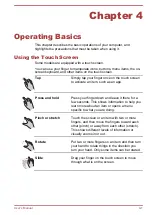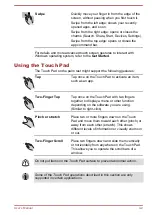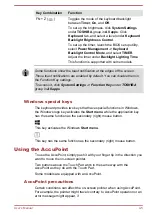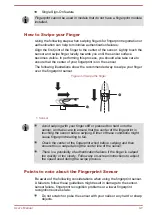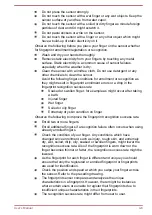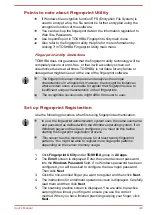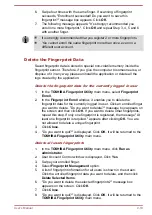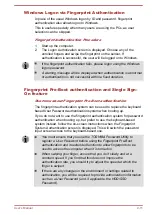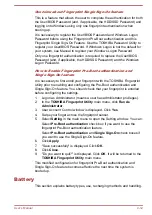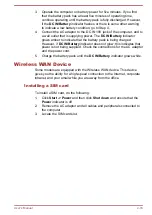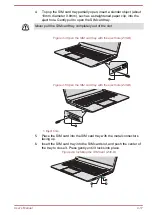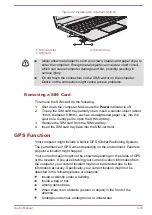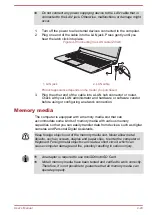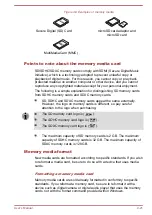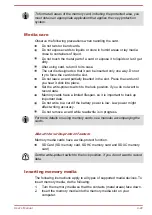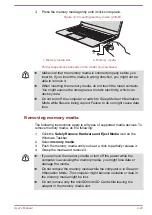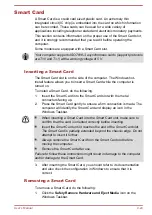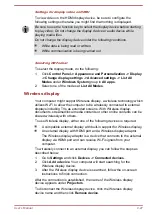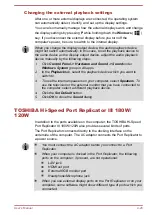
Battery types
The computer has different types of batteries:
Battery pack
When the AC adaptor is not connected, the main power source of the
computer is the lithium-ion battery, also referred to in this manual as the
main battery.
Real-Time Clock (RTC) function
The Real-Time Clock (RTC) function is supported. The battery pack
provides power for the internal real-time clock and calendar function and
also maintains the system configuration while the computer is turned off. If
the RTC lasting time completely runs out, the system will lose this
information and the real-time clock and calendar will stop working.
You can change the Real-Time Clock settings in the BIOS setup utility.
Refer to
for further information.
Care and use of the battery pack
This section provides the important safety precautions in order to handle
your battery pack properly.
Refer to the enclosed
Instruction Manual for Safety and Comfort
for
detailed precautions and handling instructions.
The battery pack can explode if not replaced, used, handled or
disposed of properly. Use only batteries recommended by TOSHIBA
as replacements.
Charge the battery pack only in an ambient temperature from 5
through 35 degrees Celsius. Otherwise, the electrolyte solution might
leak, battery pack performance might deteriorate, and the battery life
might be shortened.
Charging the batteries
When the power in the battery pack becomes low, the
DC IN/Battery
indicator flashes amber to indicate that only a few minutes of battery power
remain. If you continue to use the computer while the
DC IN/Battery
indicator flashes, the computer enters Hibernation Mode so that you do not
lose any data, and automatically turn itself off.
You must recharge the battery pack when it becomes discharged.
Procedures
To recharge a battery pack, connect the AC adaptor to the DC IN 19V jack
and plug the other end into a working outlet. The
DC IN/Battery
indicator
glows amber while the battery is being charged.
User's Manual
4-13



